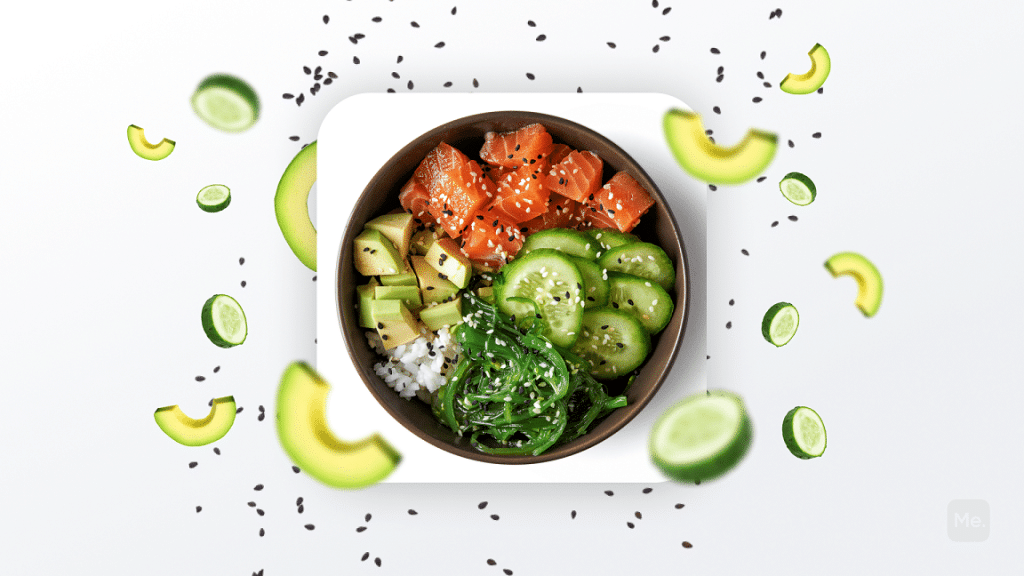Can You Turbocharge Your Weight Loss On The Cucumber Diet?
Single-product diets seem to be at the peak of popularity. The web is filled to the brim with articles that promise you the moon and steer you away from healthy dietary choices. There’s a high probability that you’ve fallen prey to money-grabbing influencers who do not comprehend the weight their words carry and lie their faces off by endorsing fad diets, detox teas, and weight loss pills.
Get your personalized
meal plan!
By sticking to one product, in our case cucumbers, the number on your scales will go down dramatically, but at what cost? Healthy cukes, high in potassium, magnesium and vitamin C, cucumbers seems like almost a magical solution to your weight struggles. Yet, what are the health cons of following the cucumber diet? Can this diet be a solid, long-term program for shedding those pounds and sculpting the body you’re striving for? Read below to find out all the benefits and pitfalls of this dietary plan.
Read More: Benefits And Disadvantages Of The Cucumber & Egg Diet
What Is It?
The Cucumber diet focuses on rapid weight loss through increased cucumber consumption. Proponents of this diet frequently state that you can lose 7 pounds in just a week of following this diet. Let’s take a look at the keystones of the cucumber diet to gain an insight in how it actually works:
- Eat cucumbers whenever you want. Whip up dishes made of cucumbers like salads and smoothies for every meal.
- Add a little bit of lean protein like fish and boiled eggs to your meals.
- Keep other fruit and vegetables to a minimum.
- Exclude unhealthy sugar-high products like soda and chips.
As you can see, the rules are fairly simple, yet the diet is remarkably restrictive.
Looking for a way to break the vicious cycle of weight loss and tone up all the jiggly parts? Watch the extra pounds fly off and your muscles firm up with the BetterMe app!
What Is The Secret Of The Cucumber Diet?
The crux of the Cucumber diet resembles other similar approaches. Cucumbers are extremely low in calories so you can eat as much as you want and still be in a calorie deficit. Though not reaching the level of juice-only week cleanses, the Cucumber diet sustains this deficit through the almost entire exclusion of certain food groups and filling up your menu with cucumbers.
The problem is that those foods are exactly what your body requires for normal functioning. Cucumbers lack essential nutrients like fat, calcium, fiber, and protein. Proteins, in particular, are indispensable for repairing your bones, protecting your organism from viruses and bacteria, lowering your blood pressure and steadily losing weight (3, 4). Furthermore, products that are rich in fiber are associated with lower risks of obesity and are proven to kick off weight loss (5). Fats are important for nerve function, brain health, and the absorption of fat-soluble vitamins, such as vitamins A, D, E, and K (2). While you can eat small portions of those foods on the cucumber diet, it is not enough for bodily maintenance. So, the Cucumber diet virtually deprives you of the foods necessary both for body functioning and effective weight loss.
Problems With Low-Calorie Diets
In addition, abnormally swift weight loss is futile. According to the research, people who stick to extremely low-calorie diets are likely to regain their lost pounds when they circle right back to their previous eating patterns(1). Last but not least, nutritionists consider the cucumber diet a form of disordered eating as it does not help you develop regular healthy eating habits.
Conclusion
To sum up, experts do not recomment the cucumber diet as a healthy diet plan. It lacks many essential vitamins and macronutrients and its results are not sustainable. Furthermore, it might develop or amplify disordered eating patterns closely linked to obesity. If you wish for a steady and healthy weight loss, opt for rich in nutrients, balanced approaches like the Vegetarian diet or the Mediterranean diet.
DISCLAIMER:
This article is intended for general informational purposes only and does not address individual circumstances. Therefore it is not a substitute for professional advice or help and should not be relied on to make decisions of any kind. A licensed physician should be consulted for diagnosis and treatment of any and all medical conditions. Any action you take upon the information presented in this article is strictly at your own risk and responsibility!
SOURCES:
- Combination of very-low-calorie diet and behavior modification in the treatment of obesity. (1992, ncbi.nlm.nih.gov);
- Fat-Soluble Vitamins: Clinical Indications and Current Challenges for Chromatographic Measurement. (2016, ncbi.nlm.nih.gov);
- Optimizing Protein Intake in Adults: Interpretation and Application of the Recommended Dietary Allowance Compared with the Acceptable Macronutrient Distribution Range (2017, ncbi.nlm.nih.gov);
- The role of protein in weight loss and maintenance (2015, ncbi.nlm.nih.gov);
- Whole-grain intake as a marker of healthy body weight and adiposity. (2008, ncbi.nlm.nih.gov)











